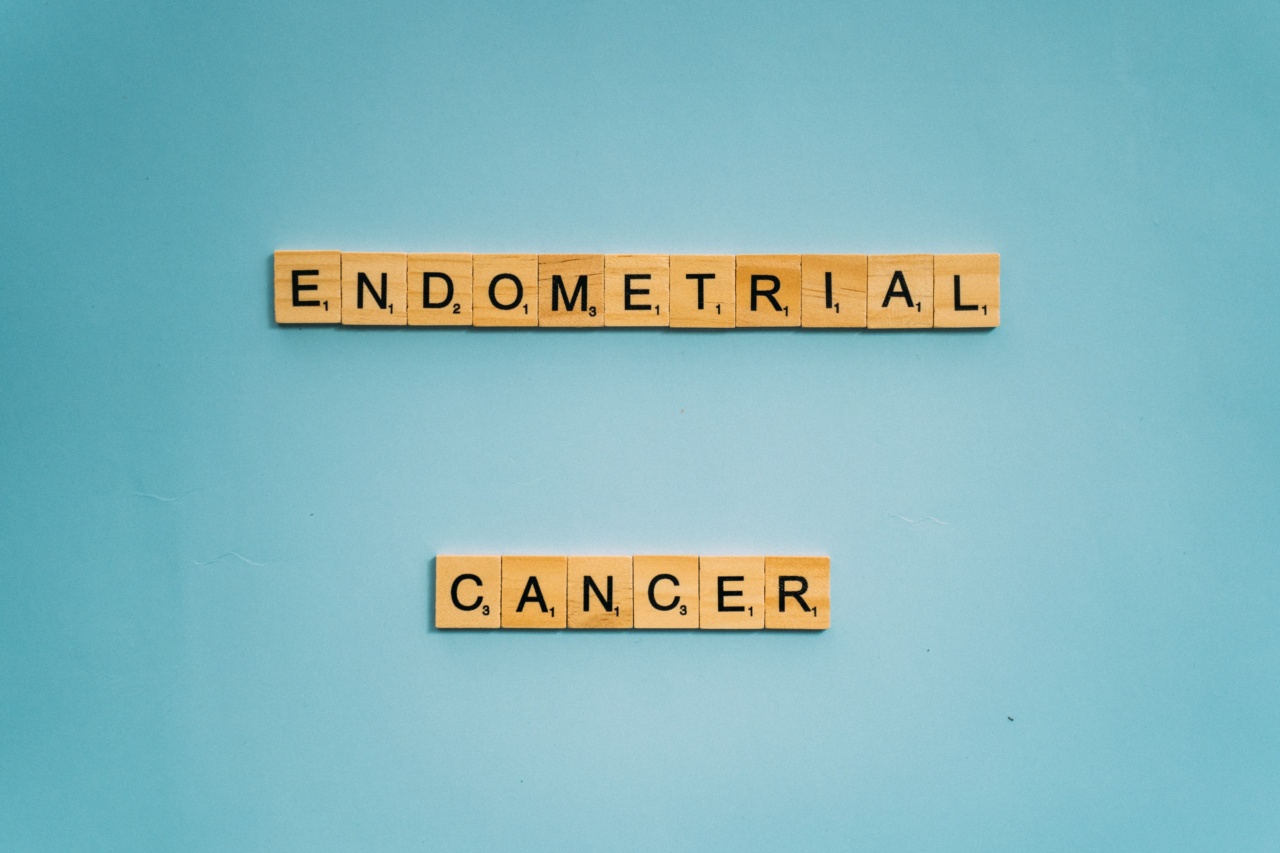Endometrial cancer is a type of cancer that affects the lining of the uterus, known as the endometrium. It is the most common type of uterine cancer and primarily affects postmenopausal women.
While the exact cause of endometrial cancer is still unknown, there are several risk factors that may increase your chances of developing this disease. By understanding these risk factors, you can take preventive measures to reduce your risk and ensure early detection. Here are five important risk factors you need to be aware of:.
Hormonal Imbalance and Estrogen Exposure
A hormonal imbalance in the body, particularly with increased estrogen levels and decreased levels of progesterone, is considered a significant risk factor for endometrial cancer.
Estrogen stimulates the growth of the endometrium, and in the absence of progesterone, it can lead to abnormal cell growth and the development of cancer. Conditions such as polycystic ovary syndrome (PCOS), obesity, and early menstruation can contribute to hormonal imbalances and increase the risk of endometrial cancer.
Obesity
Obesity is strongly linked to endometrial cancer, especially in postmenopausal women. Fat tissues produce estrogen, and excessive fat cells can lead to higher levels of estrogen in the body.
This constant exposure to estrogen can cause the endometrium to thicken and increase the risk of cancer. Maintaining a healthy weight through regular exercise and a balanced diet can significantly reduce the risk of developing endometrial cancer.
Age and Menopause
Endometrial cancer primarily occurs in women over the age of 50, with the average age of diagnosis being 60. As women age, their estrogen and progesterone levels decline, making the endometrium more susceptible to abnormal cell growth.
Additionally, late menopause (after the age of 52) or never having given birth can also increase the risk of endometrial cancer. Regular screenings and check-ups become even more crucial as women enter this age group.
Family History and Genetic Factors
A family history of endometrial cancer or certain genetic conditions can significantly increase a woman’s risk of developing this disease.
Women with Lynch syndrome (hereditary nonpolyposis colorectal cancer) have a higher risk of developing endometrial cancer, along with other cancers. Additionally, mutations in certain genes, such as BRCA1 and BRCA2, which are commonly associated with breast and ovarian cancer, may also increase the risk of endometrial cancer.
If you have a family history of cancer or genetic predispositions, it is crucial to discuss it with your healthcare provider for personalized risk assessment and screening recommendations.
Diabetes and Hypertension
Having diabetes or hypertension (high blood pressure) can also increase the risk of endometrial cancer. These conditions are often associated with obesity and hormonal imbalances, which are known risk factors for this type of cancer.
Women with diabetes have an increased risk due to high levels of insulin and insulin-like growth factors, which can promote the growth of endometrial cells. Managing diabetes and hypertension through lifestyle changes and appropriate medical treatment can help lower the risk of developing endometrial cancer.
Conclusion
While these risk factors increase the chances of developing endometrial cancer, it is essential to remember that they do not guarantee the development of the disease. Many women without these risk factors can also be diagnosed with endometrial cancer.
Regular medical check-ups, maintaining a healthy lifestyle, and being aware of any changes or symptoms in your body are important steps in early detection and successful treatment. If you have any concerns or questions about endometrial cancer or your risk factors, do not hesitate to consult with your healthcare provider.






























